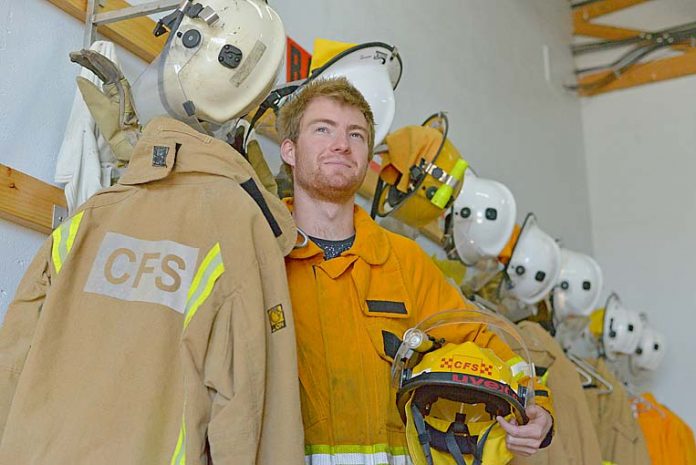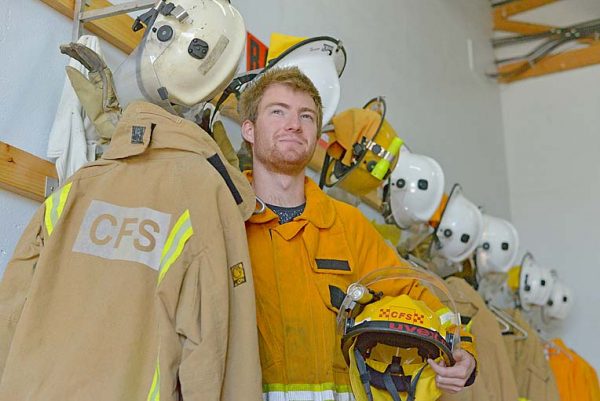

Picture: SANDRA MORELLO
FIVE volunteer Country Fire Service firefighters have returned home after being deployed to the fire emergency in Queensland.
Rodney Virgo, Jason Watts, Wade Chant, Kaylene Millard and Ian Hamilton – from the Kingsley CFS Group – headed to the zone to form part of a dedicated strike team.
CFS volunteers were highly sought after by the Queensland authorities given their expertise in battling large fires in South Australia.
The crew was sent to Stradbroke Island, which was one of a number of areas threatened by large fires.
The recent fires in Queensland were of a magnitude never before seen in that state.
Speaking to The Border Watch yesterday, Mr Chant said they were deployed to the north of Stradbroke Island for five days.
“We were sent there because of the importance and cultural significance of Stradbroke Island,” Mr Chant said.
Explaining the fire was expansive, he said their tight-knit CFS volunteers concentrated on “hot spots” and protecting the fire’s edge because there was no active fire front at the time.
“We were focused on keeping it contained and stopping it from re-igniting because we had those skills given South Australia is far more prone to bushfires than Queensland,” Mr Chant said.
Historically, he said South Australian crews had far greater experience with these fires with fast moving fire fronts compared with their Queensland counterparts.
Explaining the weather conditions were humid and hot, he said luckily the South East crews arrived just after the scorching heat wave that swept across Queensland.
Admitting they were potentially heading to dangerous fire situations, Mr Chant said the volunteers were well trained for these unpredictable and hazardous scenarios.
“We were with volunteers that we know and we have all been in it for numerous years – there is a lot of experience there,” he said.
According to Mr Watts, the emergency services in Queensland had been going “all day and all night”.
“They were flat out. They were very thankful to us for going up there,” he said.
Mr Watts also praised the fact a regional paramedic was sent along with them to keep watch over their health during their fire-fighting stint.
“Even just walking through the airport, the amount of random people who would come to you and say ‘thanks’ was great,” Mr Watts said.
During the fire emergency, the firefighters said there were 200 fires burning simultaneously in Queensland and it was a privilege to head to the fire zone to help.
Kingsley CFS Group captain Grant Fensom praised the volunteers who travelled to the Queensland fire zone, along with the paramedic.
Every strike team that left South Australia was accompanied by a paramedic from the SA Ambulance.
Mr Fensom urged people to consider joining up as a CFS volunteer given the shortfalls in many crews across the district.
He also urged landholders to ensure their properties were ready for the fire season given the potential for high fuel loads and drying conditions.







